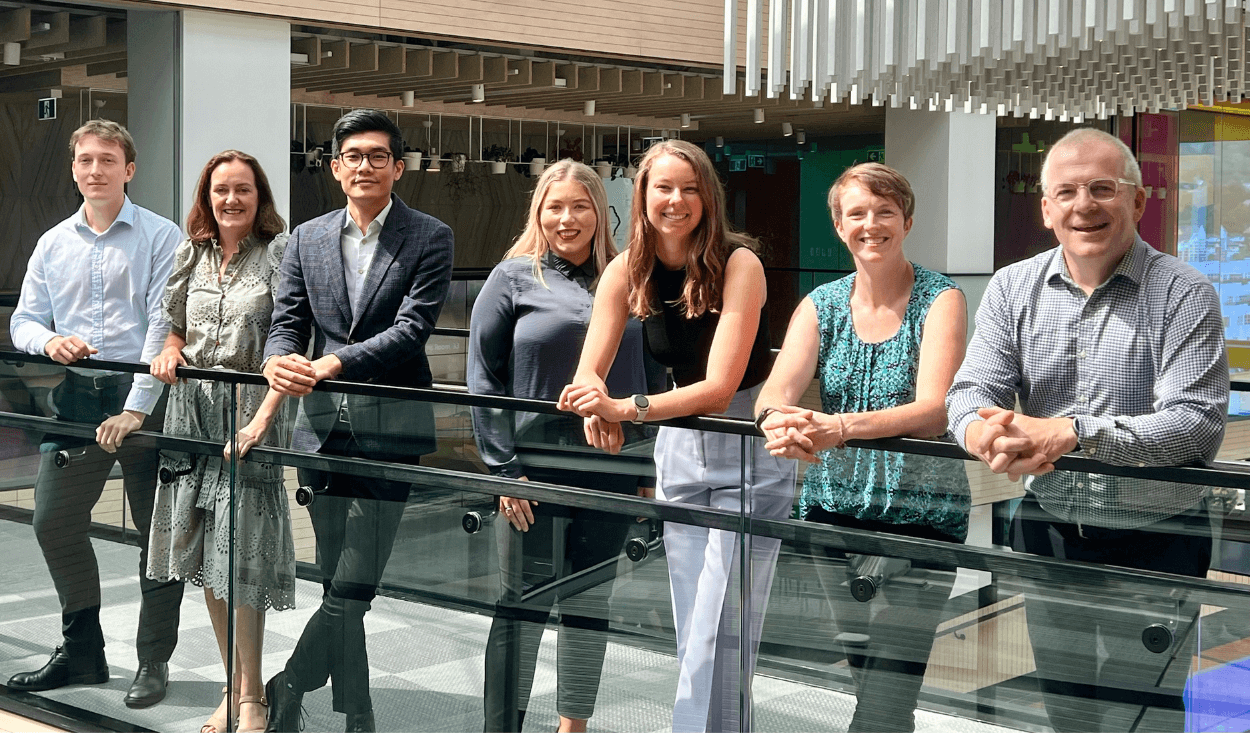
Can you give us an overview of the legal function at Mercury and how it supports the work of the organisation?
Since we last talked to Juno in 2021 the only constant at Mercury has been change. We acquired the Trustpower retail business in 2022 and migrated all customers to one brand and one tech stack last year. Alongside that, Mercury is reshaping itself into a more Adaptive organisation - one that can respond quickly to change and thrive in less predictable environments.
To support this strategic ambition, Mercury Legal has moved from a team of generalists to a business partnering model, with Legal Business Partners for our Retail and Generation and Portfolio teams, supported by Legal and Commercial Advisors dedicated to those parts of the business.
And finally, while we are still a team of seven, with six lawyers and a Legal Operations Manager, there are four new faces with Chanelle, Rachael, Dion and Nicola all joining Mercury in the last 18 months; plus we’ve added a casual position of Contracts Database Administrator.
What does the team do to build and enhance the influence of the in-house legal function across the organisation?
We laugh when we say it, but it’s true -our special sauce is our ability to join-the-dots for our business teams. Although we run a Business Partnering Model, we work hard to ensure our team is aligned and across key matters and emerging trends, and as an integral part of the Finance team, we are also acutely aware of the commercial drivers of the organisation. As a result, we can often provide broader context and a commercial lens to some of the problems we are asked to solve and this is something the business acknowledges as a true value-add.
What are the team's key challenges, and how do you plan to address these?
We are currently working through several initiatives to help the business operate successfully as an Adaptive organisation. The first of these is re-framing the way we look at compliance (as we know some eyes glaze over and shopping lists are mentally written when we talk about that!). Rather than telling the business they must comply with things, we want everyone to proactively care about doing the right thing and understand why we should care. The second initiative we’re working on is designing risk-based “guardrails” to empower the business to get on with doing business by ensuring they understand the key risks, and making it clear how and when Mercury Legal can help.
Both of these initiatives support Mercury’s purpose of “Taking care of tomorrow: connecting people and place today” and particularly reflect our key pillars of Care and Connect as we explore different possibilities for how we work together. We are using Mercury’s design thinking approach to create an innovative and practical solution, keeping our users’ needs at the heart of our approach, as we really want the outputs to be engaging rather than the traditional list of links to materials that scare the target audience. We’re currently at the prototype stage and the next step is to test it. Wish us luck!
Are there any changes or new technologies the team plans to roll out in the next 12 months, and what impact do you hope they will have?
Given that we can’t completely abandon old-fashioned compliance, we are looking to revamp our Legal Obligations Register with a more automated system to update our legal obligations as they change, simplify the yearly assurance process and make reporting easier. This will underlie the “guardrails”, so it’s an important piece of work.
The aim is twofold - to remove some manual tasks from the team, freeing up time to focus on the more strategic work, and to ensure it is easy for the business to understand their obligations, business controls and how we are tracking. It’s not groundbreaking, but the goal is to remove the idea that legal compliance is something additional for people to worry about and replace it with a simplified process that supports the success and growth of Mercury.